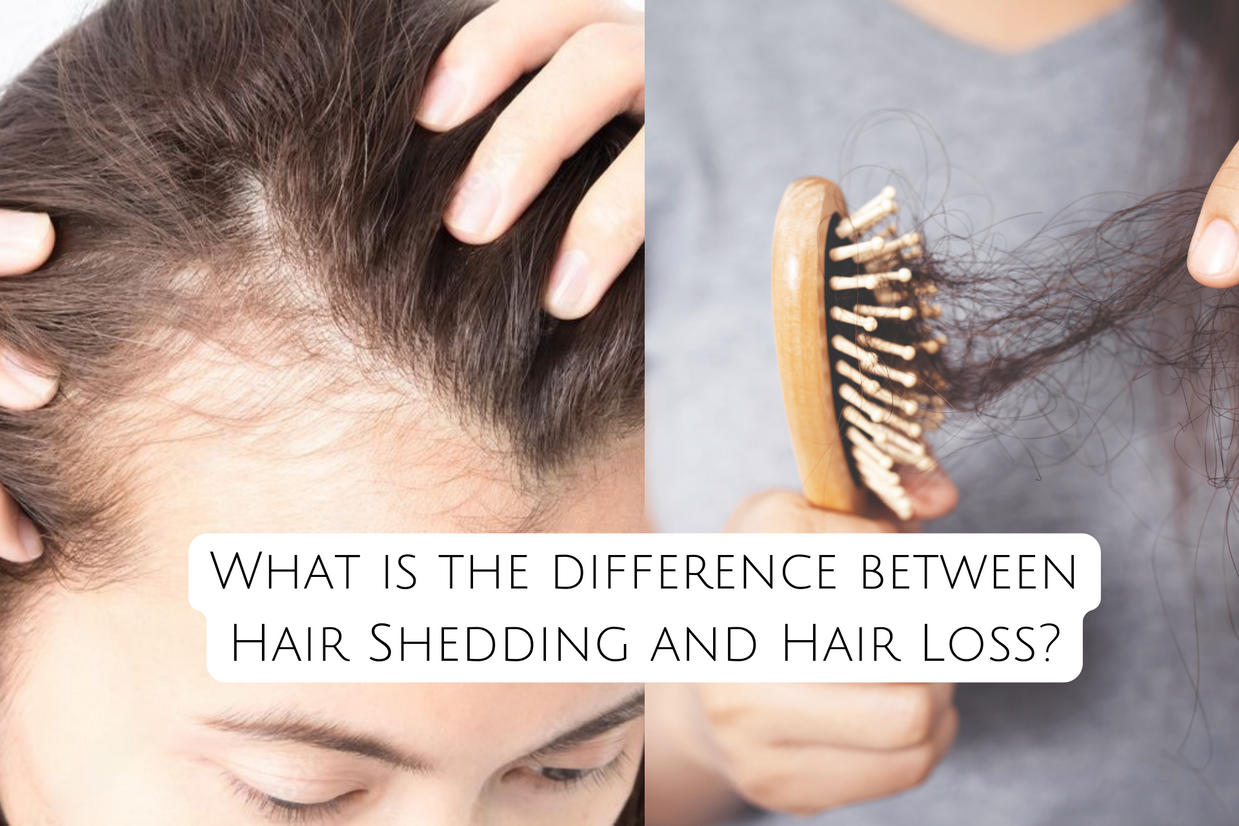What is the difference between Hair Shedding and Hair Loss?
One of the most common questions is how to tell if they are losing or shedding hair. In order to help you figure out what’s going on, we’ve created this article with some helpful tips and tricks for spotting the difference between shedding and hair loss. If you're experiencing a lot of thinning or shedding of your hair, it's best to see a doctor and rule out any medical causes first.
What is hair shedding?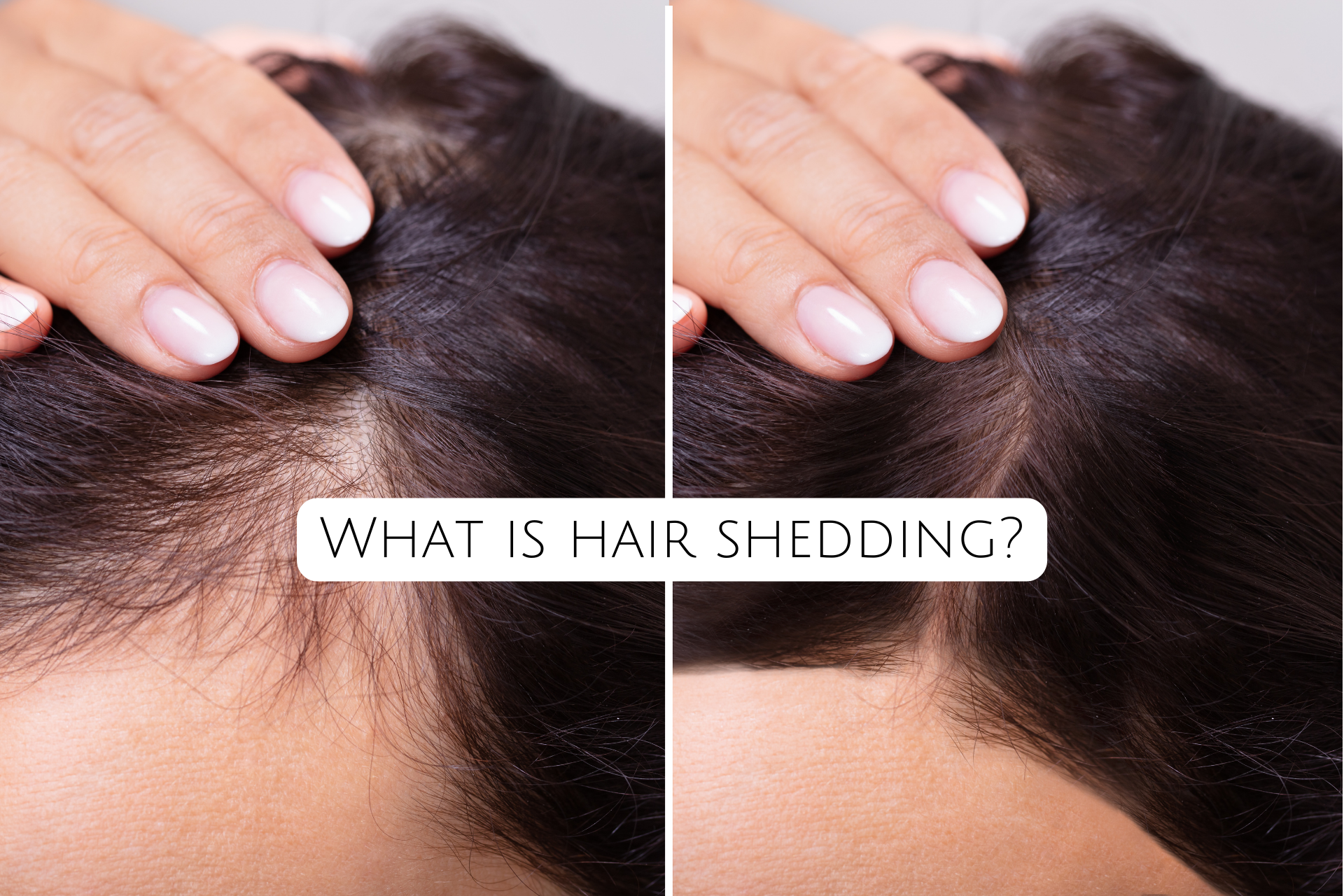
Hair shedding is a natural process that happens to all of us. In this article, we will explore the reasons behind hair shedding and what you can do to prevent it. Hair loss is a natural process that happens to everyone, but it doesn't always have to be a cause for concern. Hair follicles produce about 10% of the hair on one's head at any given time, and they go through phases where they are actively growing hair and phases where they are resting. It's normal for people to experience some amount of hair shedding - usually up to 100 strands per day - as part of this cycle.
Hair Shedding can happen for many different reasons including:
- Hormonal changes
- Stressful events
- Environmental factors such as heat or cold
- Medical conditions such as anemia
- A change in diet or lifestyle (such as going vegan)
- Side effects of medication
- Exposure to pollutants
- Dry weather conditions
- Harsh shampoos
- Unhealthy diet
- Aging
There are lots of ways to combat male pattern baldness before it becomes a big problem in your life. Some people opt for wigs or toupees, while others use extensions or clip-ins.
What is Hair loss?
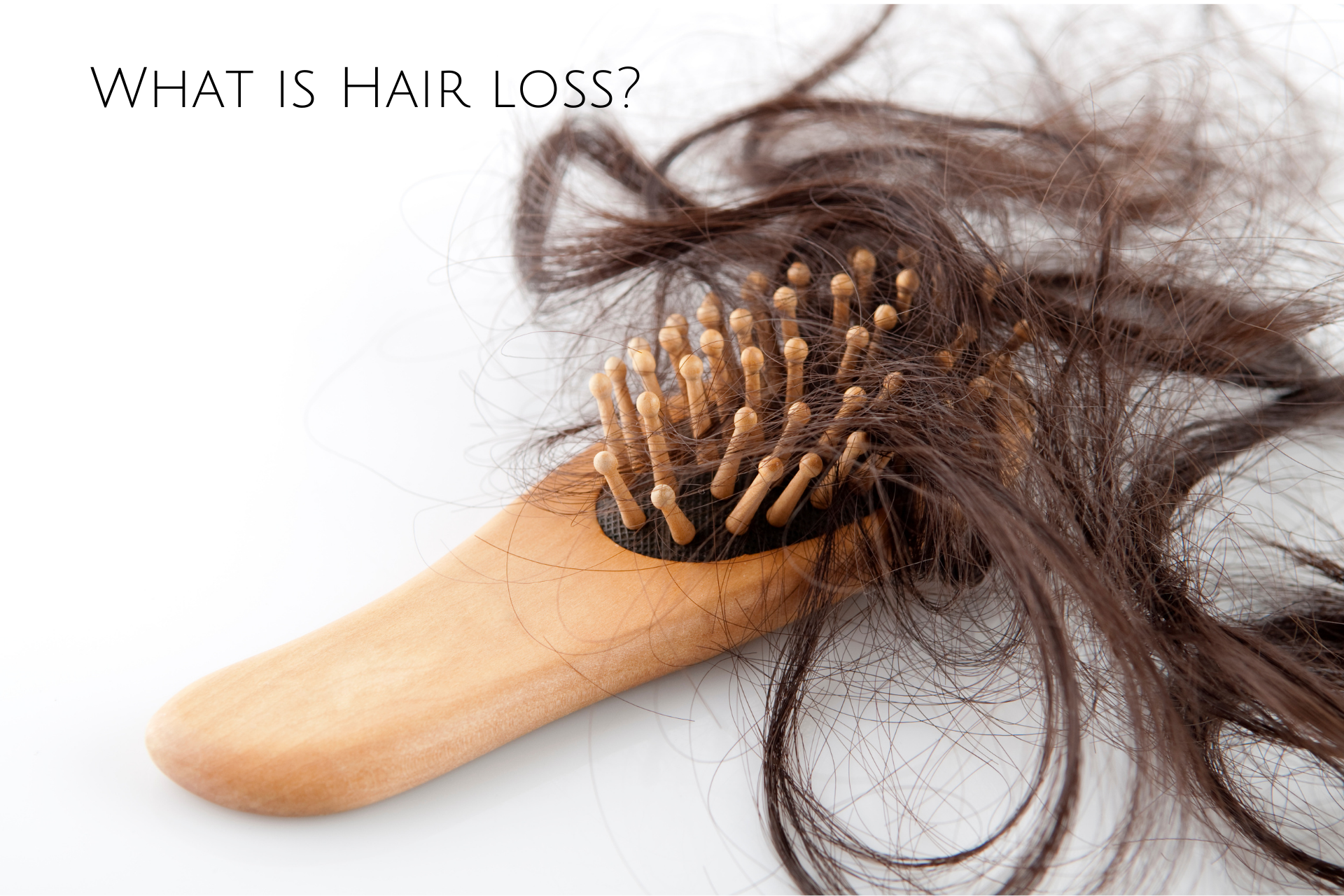
Hair loss is a gradual thinning of hair, which can occur at any point in life to anybody. It's not life-threatening or something that only certain people have access to
It's normal for hair to thin as we age, and it's something that nearly everyone goes through. All people experience this in their own way, but some are more susceptible to it than others.
The most common type of hair loss is Androgenetic Alopecia (AGA), which is caused by a genetically predetermined sensitivity to Dihydrotestosterone (DHT). Some people have a gene that causes their so-called coarse hair to grow in different directions. It's a heritable condition caused by a change in the gene that controls where hair grows from
Hair loss can be a very sensitive topic for people, and it can cause emotional distress. Therefore, it's essential to have an understanding of what causes this condition and what the symptoms of it are so you can help them in any way possible.
It can be classified in two ways: first, by the cause of the hair loss, and second by the pattern of hair loss. The pattern of hair loss can be either diffuse or localized. In diffuse hair loss, there is hair thinning but the hairline and back of the head are usually unaffected. In localized hair loss, there is a narrowing or complete blockage of the outlet for hair growth (nearby follicles).
The most common physical causes of alopecia are:
1) Trauma or surgical injury, such as surgery on your scalp.
2) Thyroid disease,
3) Alopecia Areata-It is one of the most common autoimmune disorders in the world with an estimated prevalence rate of 1-2%. Alopecia Areata has a huge impact on people's lives.
4) Alopecia Totalis-Alopecia Totalis is a form of hair loss where the entire scalp is affected. The immune system attacks the hair follicles and prevents hair from growing on the scalp.
5) Alopecia Universalis - also known as Norwood's Disease, which is characterized by total or near-total baldness even in women.
Hair shedding vs Hair loss:
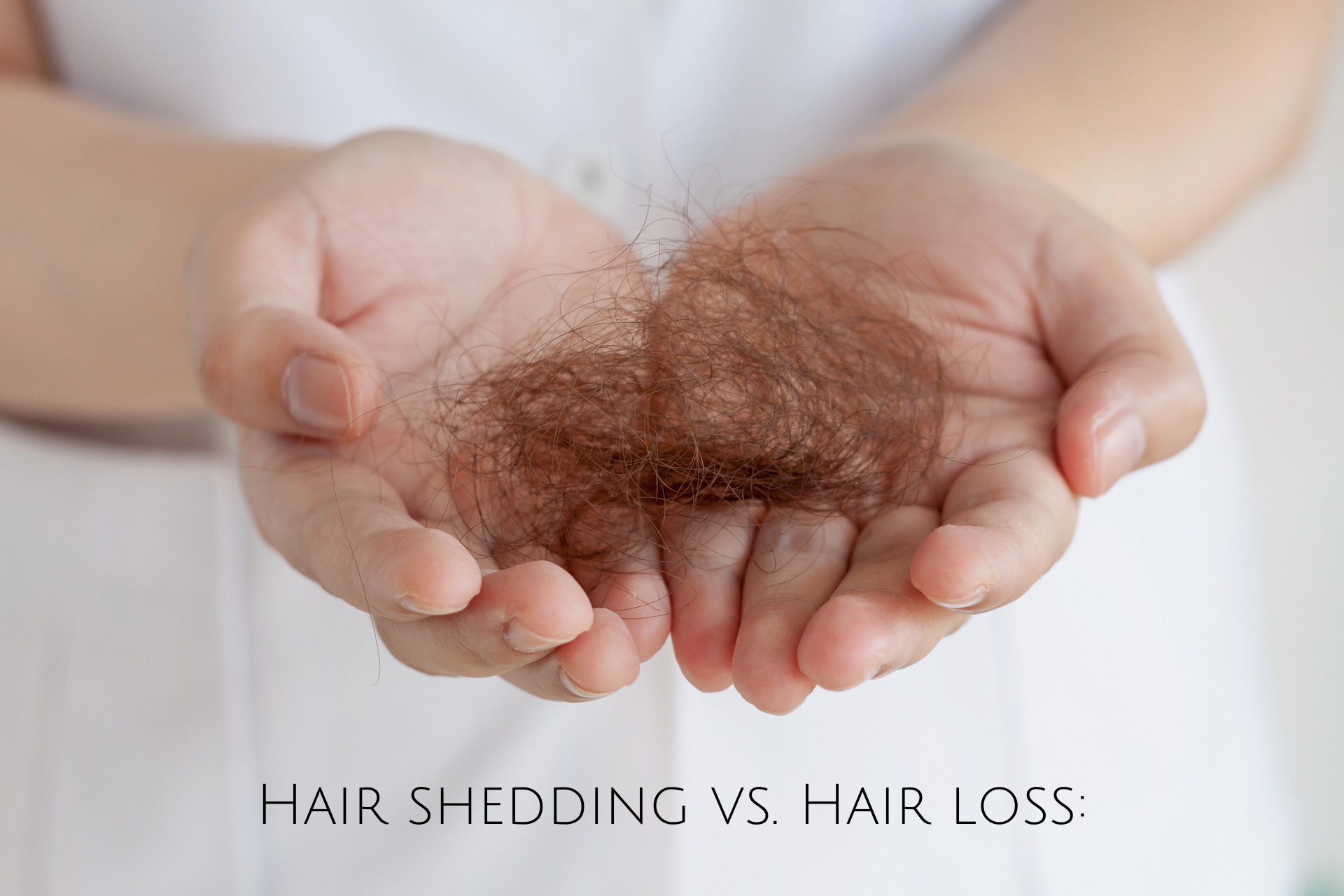
When you're not quite sure if your hair is shedding or falling when you run your hands through it, look out for these key differences:
If your hair feels lighter and more coarse than usual, it’s probably shedding
There are many ways to spot hair shedding vs. hair loss. It is essential to know what the difference is and when you should be concerned about it.
Hair shedding is a natural process in which your hair falls out and new hairs grow in its place. Hair loss can be caused by factors like hormone imbalance, anemia, or thyroid disorders. It usually happens when you shampoo your hair too often or overuse a hot tool on your scalp. Hair loss is a normal part of hair growth, and there are many reasons for hair loss.
How to reduce hair loss and shedding:
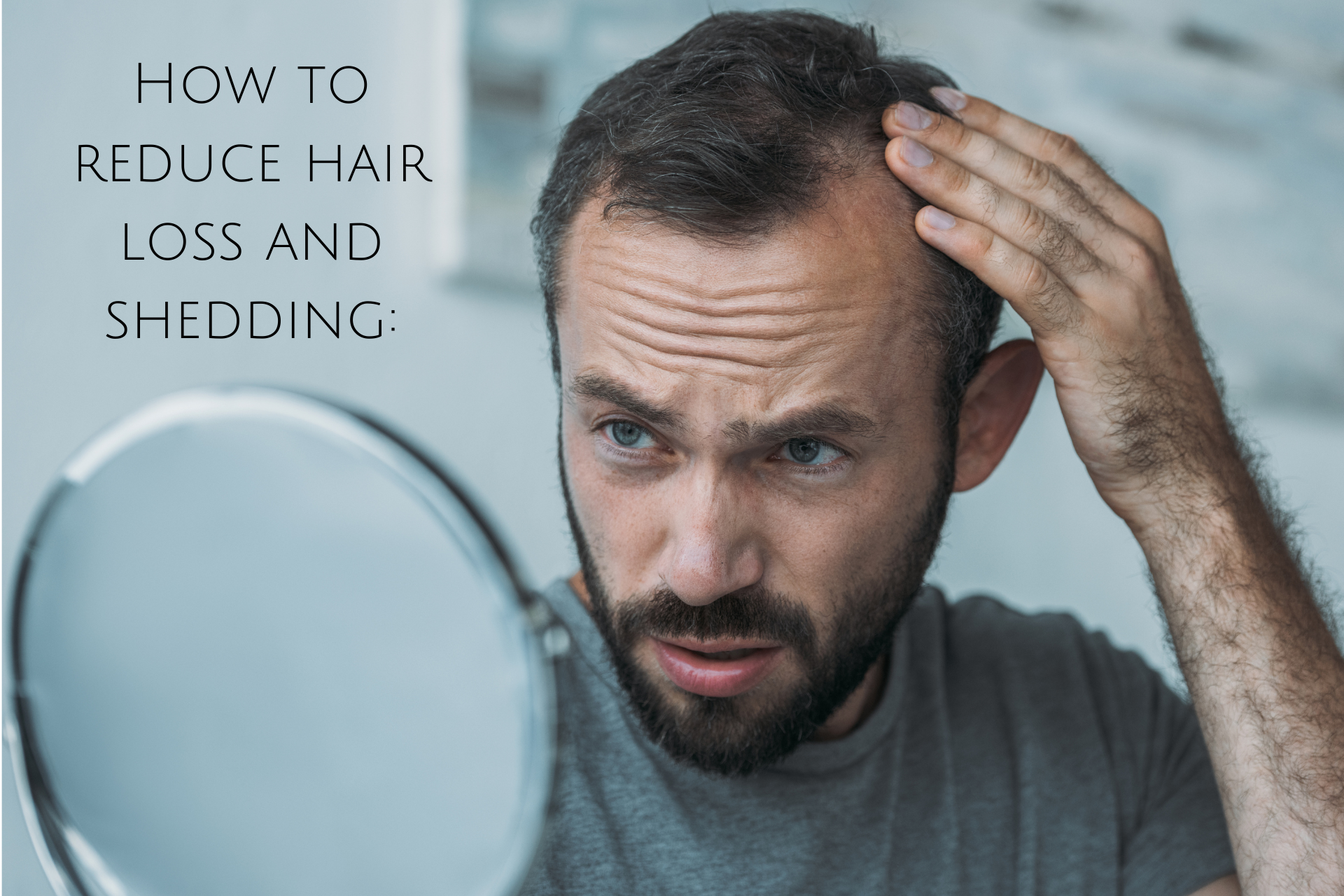
Here are some tips to reduce hair loss:
- Wear your hair up more often; this will keep your scalp cooler and help prevent dandruff.
- Use a humidifier at night; this will help regulate moisture levels in your bedroom. Use
- Conditioner after shampooing; this will coat every strand of your hair with moisture.
- Remove your makeup before you go to bed. This will help get rid of any residue on your face.
- Regular brushing and washing will help keep your scalp healthy and free of impurities.
- When using a blow dryer or other hair appliance, keep the airspeed as cool as possible, and avoid direct contact with your scalp.
- If you have acne, it may help to use a clarifying shampoo to regulate sebum production.
Myth and Truth:

In this article, we explore the difference between hair shedding and hair loss. We will also address some myths about the process of hair shedding and share some tips on how to prevent it.
Myth: Shedding is a sign that your hair is fragile and weak.
Truth: Shedding is natural and happens to everyone. It occurs as a part of the natural cycle of growth and rests on your hair follicles. Some people think they don't lose hair every day, but this is because they don't see them. The truth of the matter is that we lose about 100 hair follicles on a daily basis because of shedding. Hair loss in women and men is caused by many factors including stress, medication, hormones, and aging among others. But, in reality, hair sheds very slowly on a daily basis. This means someone with 360,00 hairs in their head would have at least 1000-2000 lost per day they're unaware of. That's because they are too small to see with the naked eye.
Recent Posts
-
Power Up Your Performance: Unleashing the Strength of Protein
Introduction:Whether you're an athlete pushing your physical limits or someone striving for an activ
-
Brush buddies:Finding the perfect tool for the job
Introduction:In the mesmerizing world of makeup, the unsung heroes are often the brushes that effort
-
Can You Wear Makeup Over Sunscreen?
Introduction:The age-old debate on whether you can wear makeup over sunscreen is one that often

